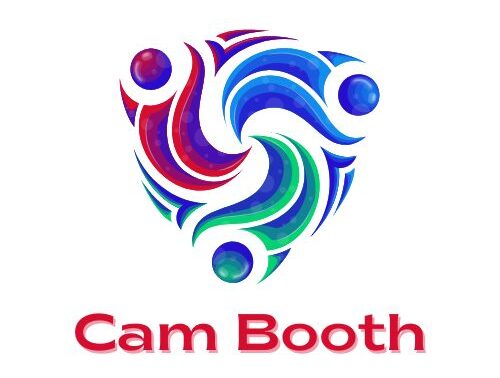Professionalism is no longer just about wearing a suit or memorizing corporate buzzwords. It’s an essential skill set that reflects competence, credibility, and integrity in today’s workplace. Regardless of your industry or level of experience, understanding what it means to be a true business professional can significantly impact your career success.
This blog is your comprehensive guide to mastering the habits, skills, and mindset that define a business professional. From effective communication to personal branding and workplace etiquette, we’ll cover all the foundational principles that help you make a lasting impression in the professional world.
What Does It Mean to Be a Business Professional?
Being a business professional goes beyond fulfilling your job description. It’s about embodying a set of values and behaviors that inspire confidence and trust in your abilities. Professionals in any industry are characterized by qualities such as:
- Accountability: Taking responsibility for your actions and delivering on promises.
- Respect: Treating colleagues, clients, and stakeholders with civility and empathy.
- Competence: Demonstrating expertise in your field and a willingness to improve.
- Integrity: Upholding ethical standards and being honest in all interactions.
By internalizing these qualities, you can position yourself as someone others want to work with and trust.
Key Skills Every Business Professional Needs
While professionalism is deeply rooted in your values, there are specific skills you’ll need to excel in your career:
1. Effective Communication
Clear and concise communication is a hallmark of professionalism. Whether you’re drafting an email or leading a presentation, the ability to articulate your message effectively can set you apart.
- Written communication: Avoid jargon, proofread your work, and tailor your message to your audience. For professional emails, remember to include a clear subject line, a courteous greeting, and an actionable closing statement.
- Verbal communication: Practice active listening during conversations, maintain a confident tone, and ensure your ideas are well-organized.
- Non-verbal communication: Body language matters. Make eye contact, maintain good posture, and use gestures sparingly to emphasize your points.
2. Networking and Relationship Building
Building strong professional relationships can open doors to new opportunities. Genuine interpersonal skills are essential for fostering mutual trust and collaboration.
- Attend industry events, both online and in person, to expand your network.
- Follow up on meetings with thoughtful emails or messages that express gratitude or highlight shared goals.
- Remember, networking is not about collecting business cards; it’s about building meaningful connections over time.
3. Time Management
Being punctual and meeting deadlines shows respect for other people’s time. It also enhances your productivity. Effective time management includes:
- Prioritizing tasks using tools like Eisenhower’s Urgent-Important Matrix.
- Setting realistic goals with clear timelines.
- Avoiding multitasking, which can dilute focus and reduce quality.
4. Adaptability
The modern workplace is constantly evolving. Technologies advance, industries shift, and challenges arise unexpectedly. Adaptability allows you to remain effective and open to change.
- Stay informed about industry trends and developments.
- Proactively learn new skills to stay relevant in your field.
- Use challenges as opportunities for innovation and growth.
The Importance of Personal Branding
Your personal brand is your reputation. It’s what people say about you when you’re not in the room. Carefully curating your personal brand can make you memorable and trustworthy in professional circles.
How to Build Your Personal Brand
- Define your values: Know what you stand for and ensure your actions reflect those values.
- Highlight your expertise: Share your knowledge through articles, social media posts, and during meetings.
- Stay consistent: Ensure your LinkedIn profile, portfolio, and even physical presentation align with the image you wish to portray.
- Engage online: Use platforms like LinkedIn or industry-specific forums to showcase thought leadership and network with peers. Remember to participate in forums professionally and contribute value to conversations.
Workplace Etiquette That Every Professional Should Follow
Professionalism shines through in your workplace interactions. Following workplace etiquette demonstrates respect for colleagues and creates a healthy work environment.
- Be punctual: Arriving on time for meetings and projects shows you value others’ time.
- Collaborate with transparency: Share credit with your team and communicate clearly about progress.
- Dress appropriately for your role and workplace culture. Even in casual workplaces, ensure your appearance is neat and presentable.
- Handle criticism gracefully: Accept constructive feedback with an open mind and commitment to improvement.
Mindset Matters: Cultivating Emotional Intelligence
A business professional doesn’t just focus on task execution—they also operate with emotional intelligence (EQ). EQ is the ability to recognize and regulate your emotions while empathizing with others. It’s especially crucial for leadership roles.
Tips for Developing EQ:
- Practice self-awareness by identifying emotional triggers and learning how they influence your behavior.
- Use empathy to understand the needs and feelings of others. This can improve communication and strengthen collaborations.
- Manage conflict with a calm and solution-oriented approach.
Practical Steps to Elevate Your Professionalism
To sum it up, here are actionable ways to strengthen your professional persona:
1. Commit to Lifelong Learning
Stay updated on industry trends by attending webinars, enrolling in courses, or joining professional organizations like Toastmasters or local business councils.
2. Ask For Feedback
Feedback from colleagues and mentors provides invaluable insights into how others perceive your professionalism.
3. Document Your Achievements
Keep a record of your contributions at work. This isn’t just for self-motivation—it’s a great resource during annual reviews or job interviews.
4. Take Care of Yourself
Working yourself to exhaustion isn’t professional; it’s counterproductive. Prioritize self-care, maintain a healthy work-life balance, and advocate for your mental well-being.
Focus on Growth and Leadership
Professionalism is not a destination; it’s a continuous process of growth and refinement. By mastering these skills and behaviors, you’ll not only thrive in your own career but inspire others to emulate the same standards.
No matter where you are in your professional journey, there’s always room for improvement. Begin by assessing your current habits and identify areas that need work. With effort and dedication, you can evolve into the epitome of a business professional.
FAQs
1. What is business professionalism?
Business professionalism refers to the set of behaviors, skills, and values that demonstrate competence, integrity, and respect in a work environment. It encompasses everything from communication and appearance to work ethic and personal accountability.
2. Why is professionalism important in the workplace?
Professionalism builds trust, fosters strong relationships, and enhances your credibility. It also creates a positive workplace culture, improves team dynamics, and plays a crucial role in career advancement.
3. How can I improve my professional etiquette?
Start by focusing on clear communication, active listening, and proper workplace manners. Additionally, dress appropriately for your industry, respect others’ time, and maintain a positive attitude in all interactions.
4. Can professionalism help me advance my career?
Absolutely! Demonstrating professionalism can make you stand out to your peers, supervisors, and clients. It showcases your dedication and reliability, increasing opportunities for promotions, leadership roles, and networking connections.
5. Is personal branding part of professionalism?
Yes, personal branding is an integral aspect of professionalism. It reflects how you present yourself to colleagues, clients, and the wider industry. Building a strong personal brand can greatly enhance your professional reputatio







